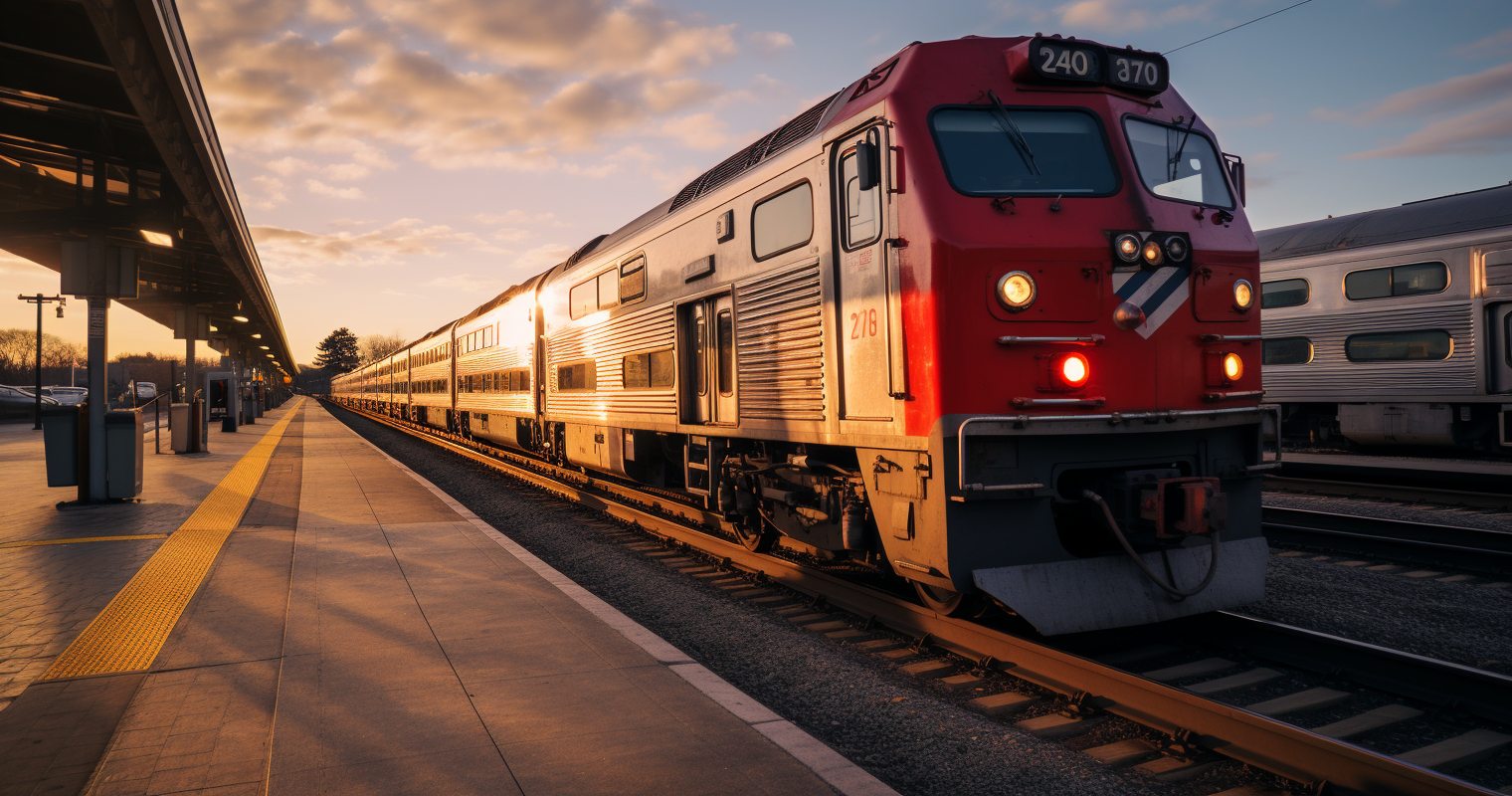France has an extensive rail network that covers most of the country, connecting major cities and smaller towns. The rail network is operated by the state-owned company SNCF, which operates passenger trains for both locals and tourists. In this article, we will explore the standard of rail travel in France, the different classes of service, where to find information on timetables and tickets, and more.
Overall Standard of Rail Travel in France
The overall standard of rail travel in France is excellent, with modern and comfortable trains that offer scenic views of the French countryside. The trains are well-maintained, and the staff is friendly and helpful. The routes offer a mix of day trips and longer journeys, with stops at popular destinations such as Paris, Lyon, and Marseille.
Classes of Rail Travel in France
There are four classes of rail travel in France: standard, standard 1ère classe, standard 1ère classe luxe, and business. The main differences between the classes are the level of comfort and amenities provided.
Standard class: This is the most basic class of service, with comfortable seats and access to a dining car where passengers can purchase food and drinks.
Standard 1ère classe: This class offers more comfortable seats with extra legroom, and complimentary coffee, tea, and water. Some trains also have a bistro car where passengers can purchase snacks and drinks.
Standard 1ère classe luxe: This class offers even more comfortable seats, with even more legroom, and complimentary coffee, tea, water, and champagne. A hot meal is also served at your seat.
Business class: This class offers the most comfortable seats, with extra privacy, and complimentary food and drinks served at your seat.
Finding Information on Rail Timetables and Ticket Prices
The best place to find information on rail timetables and ticket prices in France is on the SNCF website (https://en.oui.sncf/en/). The website has a user-friendly interface and provides detailed information on the different train routes, schedules, and ticket prices.
Buying Rail Tickets and Reservations in France
Rail tickets and reservations can be purchased directly from the SNCF website, at train stations, or from authorized travel agents. It’s recommended to book in advance, especially during peak travel periods, as trains can sell out quickly.
Contact details for SNCF are as follows:
- Phone: +33 (0) 892 35 35 35
- Email: contact@oui.sncf
- Address: 2, place aux Etoiles, CS 70001, 93633 La Plaine Saint-Denis Cedex, France
Types of Rail Tickets and Discounts
There are several types of rail tickets available in France, including one-way, round-trip, and multi-ride tickets. The prices vary depending on the class of service and the distance traveled.
SNCF also offers several discounts, including:
- Youth discounts: Passengers under the age of 28 receive a 30% discount on standard and standard 1ère classe tickets.
- Senior citizen discounts: Passengers over the age of 60 are eligible for a 25% discount on standard and standard 1ère classe tickets.
- Family discounts: Families with two or more children receive a 50% discount on standard and standard 1ère classe tickets.
Rail Travel for Disabled Passengers
The rail network in France is generally accessible for disabled passengers. Most trains have wheelchair access, and the stations are equipped with ramps and elevators. SNCF also offers assistance for disabled passengers, including boarding and disembarking assistance, and the use of an onboard wheelchair.
Underground Trains or Metros in Urban Areas
France has several underground trains or metros in urban areas.
Paris Metro
The Paris Metro is a rapid transit system that serves the city of Paris and its surrounding areas. It has 16 lines, covering a total distance of 214 kilometers, with a total of 303 stations. The metro runs from 5:30 am to 1:15 am on weekdays, and from 5:30 am to 2:15 am on weekends.
The Paris Metro is modern and efficient, with air conditioning and Wi-Fi onboard. The trains run frequently, with a maximum wait time of 2-3 minutes during peak hours. The metro is also affordable, with a one-way ticket costing 1.90 euros.
Lyon Metro
The Lyon Metro is a rapid transit system that serves the city of Lyon and its surrounding areas. It has four lines, covering a total distance of 32 kilometers, with a total of 40 stations. The metro runs from 5:00 am to midnight on weekdays, and from 5:00 am to 1:00 am on weekends.
The Lyon Metro is modern and efficient, with air conditioning and Wi-Fi onboard. The trains run frequently, with a maximum wait time of 3-4 minutes during peak hours. The metro is also affordable, with a one-way ticket costing 1.90 euros.
Marseille Metro
The Marseille Metro is a rapid transit system that serves the city of Marseille and its surrounding areas. It has two lines, covering a total distance of 21 kilometers, with a total of 28 stations. The metro runs from 5:00 am to midnight on weekdays, and from 5:00 am to 1:00 am on weekends.
The Marseille Metro is modern and efficient, with air conditioning and Wi-Fi onboard. The trains run frequently, with a maximum wait time of 2-3 minutes during peak hours. The metro is also affordable, with a one-way ticket costing 1.70 euros.
In conclusion, rail travel in France offers a comfortable and efficient way to explore the country’s diverse landscapes. There are four classes of service available, with options for every budget. Information on timetables and ticket prices can be found on the SNCF website, and tickets can be purchased online or at train stations. Discounts are available for youth, senior citizens, and families. The rail network in France is generally accessible for disabled passengers, with assistance available upon request. The Paris, Lyon, and Marseille metros provide modern and efficient modes of transport in urban areas.

